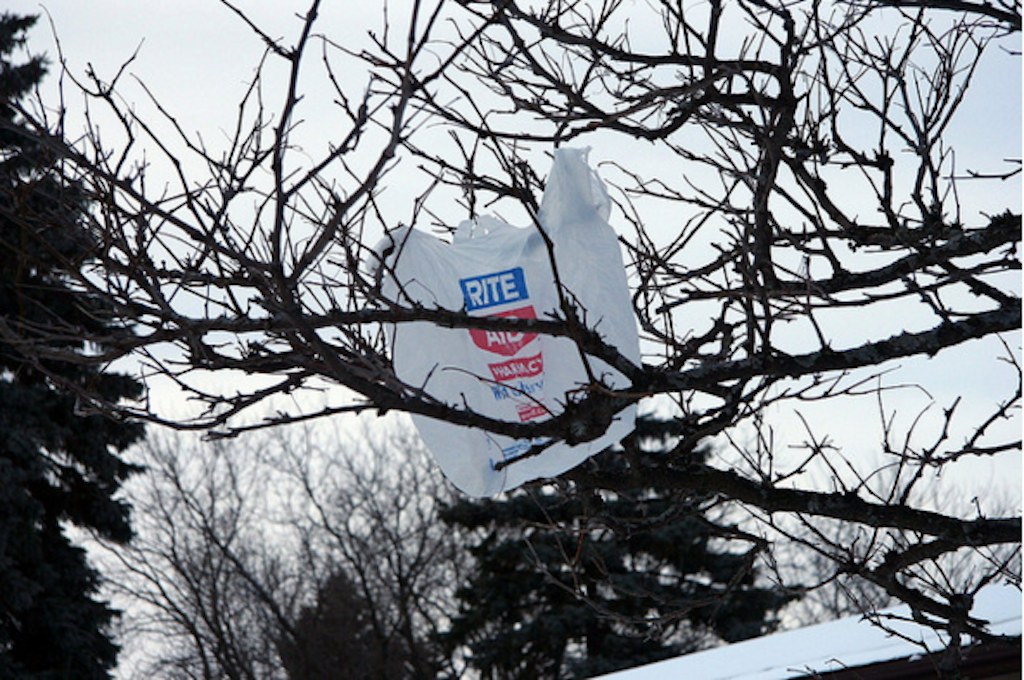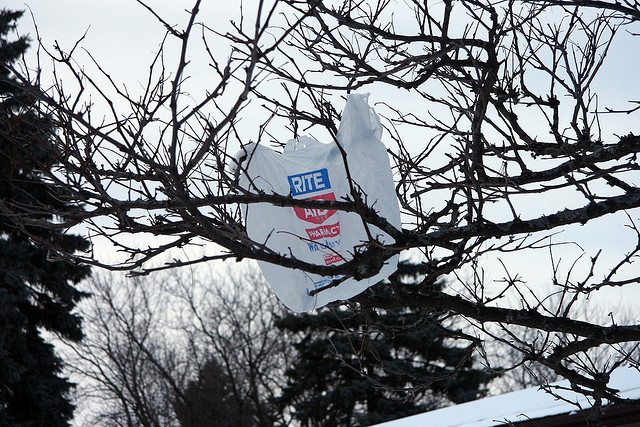Bag Bill Passes But Debate Continues Over How Best To Reduce City’s Waste Output


The City Council on Thursday narrowly passed a controversial shopping bag fee aimed at curbing the use of disposable grocery bags in favor of more environmentally-friendly, reusable alternatives.
Proponents of the bill, which passed 28-20, say it will rein in the ubiquitous use of shopping bags — that pile up every year in landfills — and bring New York in line with cities like San Francisco and Washington D.C., which have passed similar legislation. Spearheaded by local Council Member Brad Lander, the new law imposes a five-cent fee on paper and plastic shopping bags, and is expected to go into effect in October.
There are some exceptions: the fee does not apply to bags obtained from pharmacies, produce and liquor stores. Soup kitchens, and customers purchasing groceries with food stamps, are also exempt.
The fierce debate over the bill exposed broader disagreement regarding how New York City should reduce its production of solid waste. The de Blasio administration has set the highly ambitious goal of sending zero solid waste to landfills by 2030 — only 14 years away.
Every day, roughly 21,000 tons of residential and commercial trash is moved by truck, barge and rail out of New York City. While only a fraction of our overall waste output, plastic bags have become symbolic of the city’s larger struggle with trash.
New Yorkers use 5.2 billion carryout bags per year, the majority of which are not recycled, says Bag It NYC, a coalition of community-based organizations which has supported the fee. The City pays an estimated $10 million to transport 100,000 tons of plastic bags to out-of-state landfills every year, they say.
Unfairly Impacting Low-Income New Yorkers?
The bag fee has drawn considerable scorn, however, from southern Brooklyn lawmakers who say it would disproportionately impact low-income and elderly New Yorkers who can’t afford to shell out a nickel for every grocery bag.
In our area, Council Members Mathieu Eugene and David Greenfield voted against the legislation. Jumaane Williams came out in support of the bill — after it was amended to require that a study be conducted of the bag fee’s impact on low-income New Yorkers.
Council Member Chaim Deutsch, who represents sections of Midwood, Brighton Beach and Sheepshead Bay, said he supports measures to protect the environment, but that the law should be written to encourage shoppers to use reusable bags, not punish those who don’t.
Similarly, Council Member Mark Treyger of Coney Island acknowledged that grocery stores such as Whole Foods do reward customers who use reusable bags, but he maintained that Whole Foods stores are located in more affluent neighborhoods. “One can safely assume which areas have Whole Foods stores and which don’t,” Treyger said. “For residents of Southern Brooklyn, this is not an equitable solution.”
Officials from Washington, DC, which has a large low-income population, testified at a New York City Council hearing in 2014 that their five cent bag fee has been successful across all of Washington’s income groups.
The District’s Department of Environment (DDOE) commissioned a survey in 2013 which found that 83 percent of residents and 90 percent of businesses said they either supported the bag fee or had no strong feelings about it. Eight out of ten residents said they had reduced their use of disposable bags because of the fee.
In the 2013 survey, 80 percent of residents in Washington DC’s most financially disadvantaged ward supported or had no strong feelings about the law, city officials claim.
Will plastic grocery bags eventually go the way of the subway token and phone booth? State Senator Simcha Felder, who as a councilman voted against a six-cent bag fee touted by former Mayor Michael Bloomberg, has introduced a bill to prohibit municipalities from setting bag fees, the New York Times reports.
Felder told the Times the fees are “nothing less than a tax on the poor and the middle class — the most disadvantaged people.”
Lawmakers who voted against Lander’s bill also noted the fee goes directly into the pockets of retailers, rather than being collected by the City and used for public benefit.
Writing in the Yeshiva World News, local Council Member David Greenfield said “the bag tax now under consideration in New York is, by design, a massive giveaway by politicians to wealthy business owners.”
“While five cents for a plastic bag may not sound like much to the types of people who are supporting this legislation, the fact is that there are many families in New York for whom every nickel counts,” Greenfield wrote.
Council Member Lander has responded to the bill’s critics by arguing that the very fact that the bag fee will not be collected by the City is a positive. The fee will go to grocery stores large and small, he said. And New Yorkers will ultimately reduce their use of plastic bags, sending fewer to landfills, Lander predicted.
(Sarah Crean contributed reporting for this story.)




